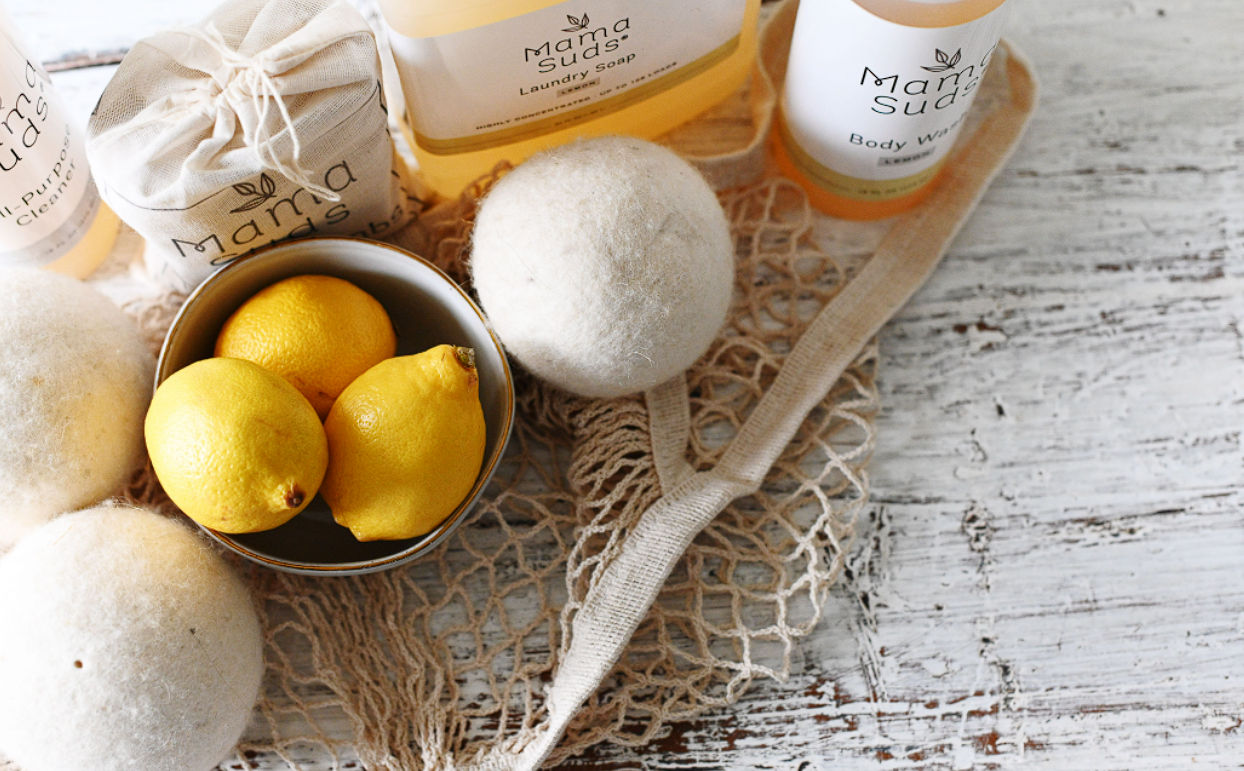
The CleanSuds Blog
Where education and truthful facts are easy to come by.
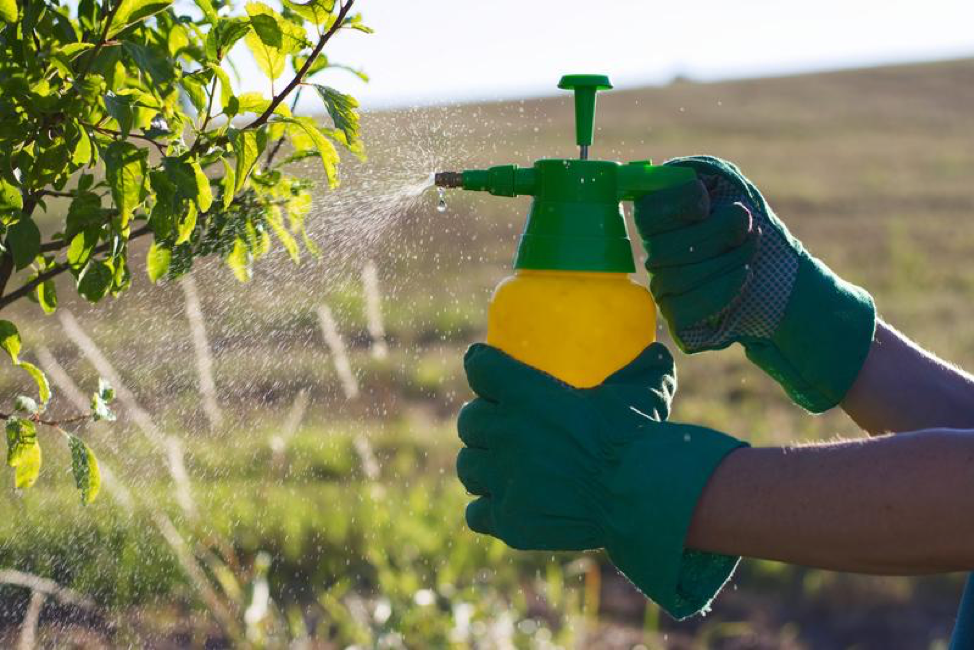
Pests, Toxins, and You: What to Know
There’s nothing more unpleasant than having unwanted visitors in the form of pests in your home. Whether you’re dealing with fleas or bed bugs inside your dwelling or ants, spiders or grubs on its exterior, you are probably looking for ways to force them to another location. Common pesticides can be effective, but these products typically contain toxins that make them very dangerous to use. In many cases, these dangers persist well past the application process. You don’t even want to come into contact with them after the fact. Let’s talk more about pests, toxins and what you need to know in order to keep yourself safe.
Dangers of Pests
It’s a nuisance to have pests in your home, but there can be bigger problems associated with them. For example, there are bugs that can carry disease. When they bite you, they can make you quite sick. If you have fleas in your home, they could be feeding off your pet. If this goes on for too long, the pet can become anemic to a life-threatening degree.
Toxins and You
There are various pest control products available. What you choose really depends on the type of pest that you are trying to get rid of. Remember, however, that conventional toxins become less effective on pests as time goes on. It’s important for you to use materials that will work on resilient pests, but the substance shouldn’t harm you. While a product might claim to be perfectly safe for adults, children, and pets, you can’t guarantee that to be true, especially if you’re using strong and toxic chemicals.
What Should You Use?
Fortunately, there are many natural pest repellents that you can use in your home and on your property. Many different essential oils repel insects. You can use these natural sprays in the home around baseboards, on the carpet and around windows and doors. You can also utilize spray bottles that attach to the hose, which will allow you to distribute the substance all over your yard. This will cut down on your pest population.
If you’re not sure what type of pest product you should be using in your home, you can speak with a conscientious pest control specialist in your area. They will be able to give you a safe recommendation that will be effective on even the most resilient pests. Once you have the problem under control, it will be easier to prevent a future problem from occurring again.
It’s important to limit the number of toxins and chemicals that enter your house. That’s why MamaSuds creates natural vegan soaps and household cleaners; so that you can create a safe and clean home for the people you love!

How Environmental Factors Help Facilitate a Healthy Lifestyle
• Warmer weather encourages outdoor activities, such as walking, running, hiking and biking.
• Eating habits are often inherited from parents; nutrient-rich foods and limiting intake of carbs/starchy foods helps prevent tooth decay and periodontal disease.
• Social interaction with family members or friends can help reduce issues like anxiety or depression, which can lead to better health.
• Establishing a healthy lifestyle is a combination of elements that make individuals and families feel well in body and mind.
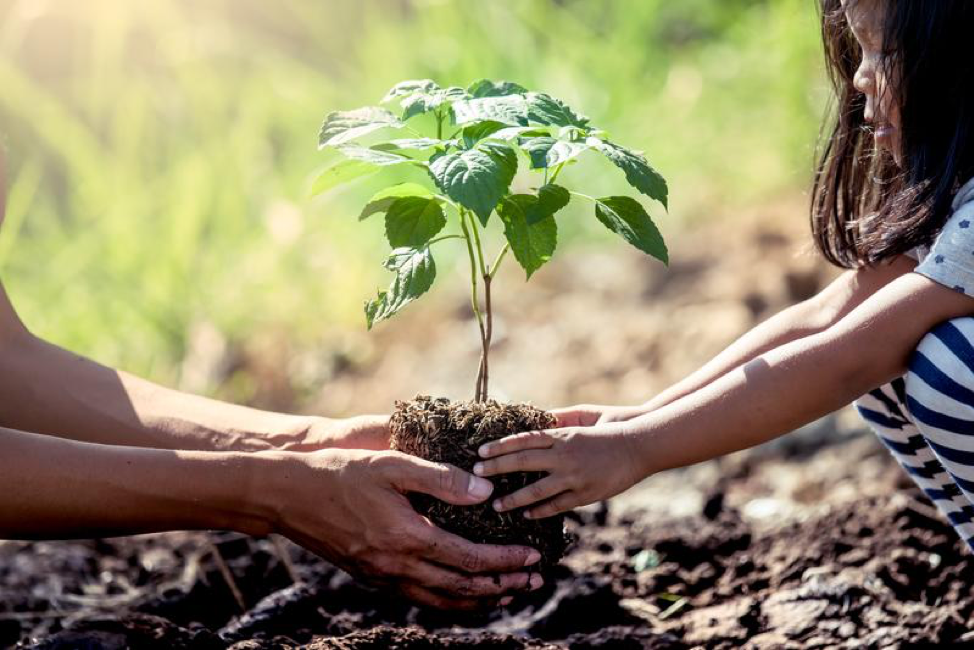
3 Things to Know About Planting a Tree on Your Property
Of the many ways to beautify your property, planting a tree is a very good choice. One reason is that you'll benefit from the sight of branches full of healthy leaves. You also help the environment by creating a space where carbon dioxide is absorbed, oxygen is released into the air, and roots hold onto the soil to prevent erosion. Below, we've identified three key steps to help you make your planting successful.
Plant a Native Species
First, choose the right plants for your area. A tree that naturally fits your environment should require less work in terms of watering and fertilizing. For example, if you live in a very dry area, plants that thrive in humidity may need a lot of extra help to thrive, which translates to more time, money and effort on your part to keep the tree healthy.
By choosing a native species, you'll also be providing support for birds and other animals whose needs are compatible with those of your tree.
Plant it in the Right Place
If you're in the northern hemisphere, planting the tree on the southern or western side of your home will provide shade from the sun during the hottest part of the day. Kruse Tree Trim & Construction suggests taking height and spread into consideration so that it doesn't pose a threat to your house later on and have to be removed.
Trees that grow too close to your home tend to cause damage to your roof and drop debris into your home gutter system. This build up in your gutters can ultimately attract more pests into your home. While you can take steps to deter pests, it's better to be safe and plant the tree at an adequate distance from your house.
Consider soil, sun, and moisture requirements and plant in an appropriate location. Also consider whether your tree will drop lots of leaves or overripe fruit into a neighbor's yard. That tree which is a source of pride for you could be a big nuisance to the family next door.
Plant it Properly
Trees Are Good recommends that the best time to plant a young tree is when the weather is likely to be mild, without hot or cold extremes. For much of the US, planting in spring or fall is ideal.
Dig a hole that's deeper and wider than the root ball to allow room for the roots to spread out and grow. Really hard soil could block root growth, so break up large clumps and remove large rocks. Note that specific planting techniques are required depending on whether the roots are bare, wrapped in burlap, or planted in a container.
Choosing and planting the right tree can be easy. If you give your tree what it needs to thrive, it should reward you with years of healthy growth.
These other great articles will give you more great information!
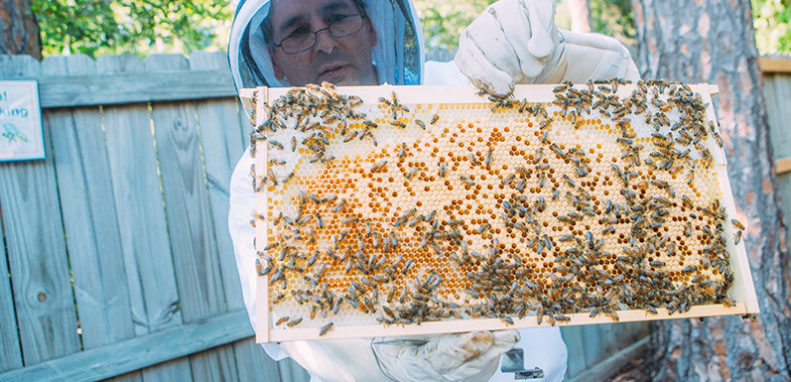
A Gardener’s Guide To Protecting The Bees
• Without bees, certain favorite foods may no longer be available and veg harvest yields could decrease by up to 71%
• Gardeners can help protect bees by limiting insecticide use, refraining from cutting/weeding flowers, choosing flowers that bees love, creating a water source and providing a shelter and habitat
• Buying local honey helps support beekeepers, and providing sugar water for tired bees is a simple way to revive them
• Bee Cities USA support communities in taking steps to protect bee populations, citizens can become involved in global bee conservation organizations
• Making small changes in gardens & lifestyle can contribute towards preserving the declining bee population
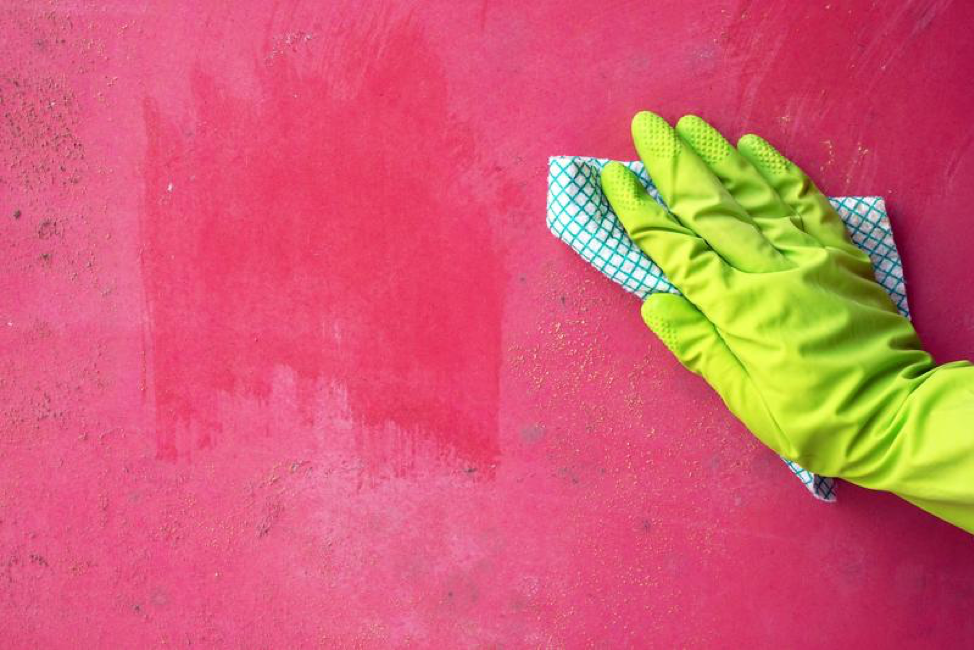
4 Toxin-Free Ways to Clean Up Mold
Within most humid and warm environments, there is the by-product called mold. Whether you live near a forest, by the ocean, or any other moist place, mold will thrive. It can work on decaying certain organic materials and recycle them back into the Earth. Molds can also be used to make enzymes to make certain foods. Molds have the ability to develop penicillin and other antibiotics. However, the last place you want mold would be in your house. How do you remove your home’s mold without introducing other harmful toxins? Here are four ways to do it.
Early Detection
Detecting mold in your home as early as possible is the best strategy, simply because the spores can become airborne and cause the mold to easily spread. Cleaning it off of walls within a few hours of the first appearance of mold is ideal.
Use Vinegar
The best way to utilize vinegar as a mold-fighting agent is to spray it undiluted on the offending area. After leaving the vinegar on the mold for a few hours, you can wipe off the mold. White vinegar is particularly adept at killing mold spores, with some studies reporting a track record of eliminating 82% of them.
Hydrogen Peroxide
If you’re turned off by the smell of vinegar, in many cases, you can utilize hydrogen peroxide to get mold residue off your surfaces. Just spray a 3% hydrogen peroxide solution on the mold and wait for ten minutes. After you scrub it clean, you can remove any residue with a damp cloth to treat any residue. Many individuals have found hydrogen peroxide and vinegar as an effective solution for mold issues. Store it in a bottle in a dark area so light doesn’t break it down.
Stock Up on MamaSuds
There are plenty of all-purpose cleaners on the market today that fight mold, such as Mamasuds. This brand diminishes mold by neutralizing the properties of the fungus and then the cleaner can wipe it away almost immediately.
As you can see, there is no need for you to use harsh chemicals to clean up the mold issues in your home. You can use any of these alternatives and you can also talk to experts to learn of countless more options too. These individuals have spent their whole careers finding new ways to combat the mold problem in many homes, and they would be happy to assist you.
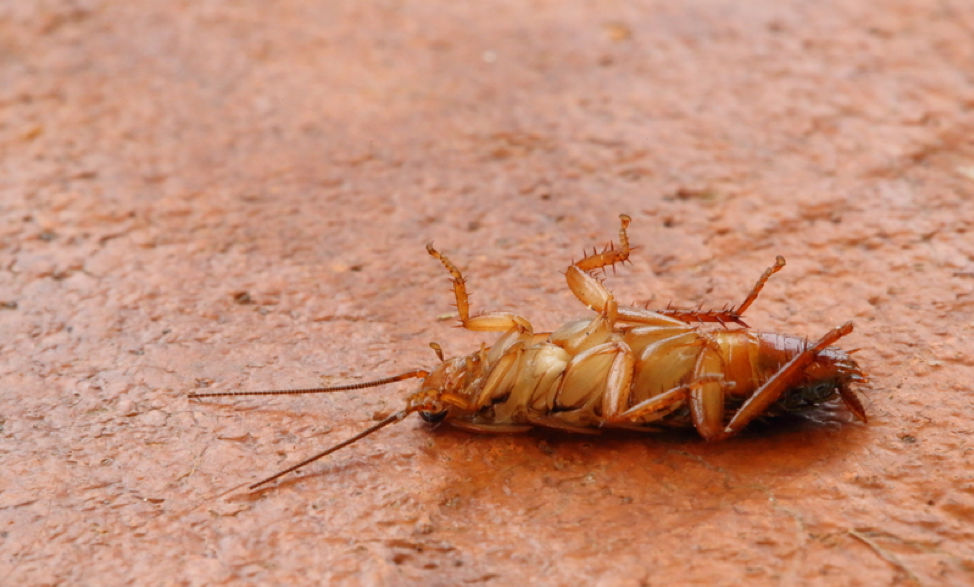
Can Vegans Use Pest Control?
• Non-lethal alternatives such as catching and releasing, preventing entry, and keeping the house clean are possible solutions.
• Compassionate pest control companies provide humane options by employing strategies such as relocation, traps, contraception and rehabilitation.
• Respect for the rights of all living beings should be observed when dealing with pest removal.
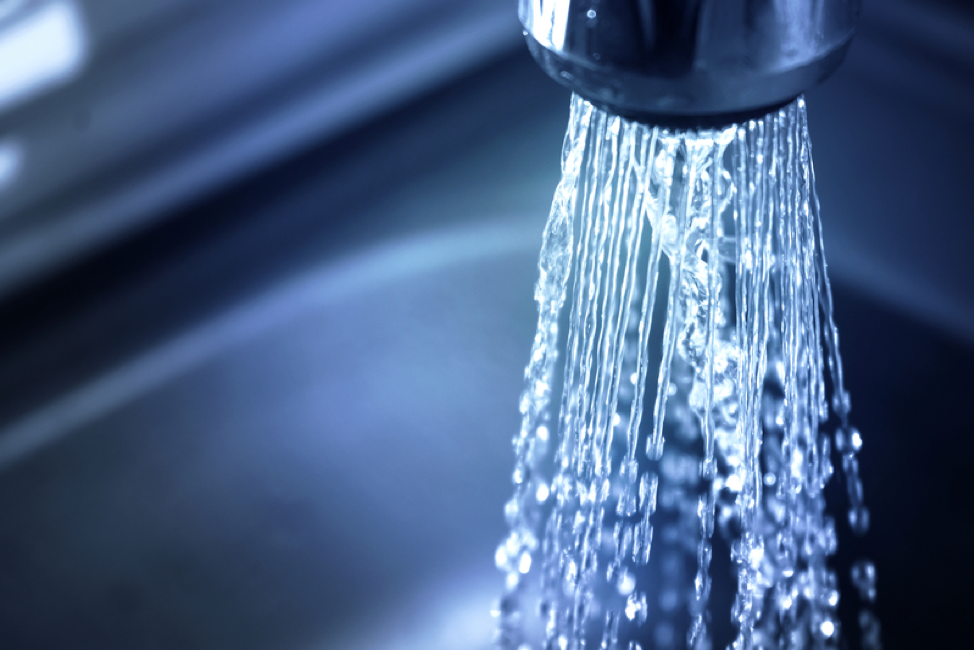
3 Tips to Reduce Your Home's Water Footprint
Lowering your home’s water footprint is good for the environment and your bank account, but many homeowners don’t know where to begin this process. If you are ready to make your home as efficient as possible, then here are a few tips that you can use to reduce your water consumption.
Find Alternatives
Upgrading just a few of the fixtures and appliances throughout your home could reduce your water footprint by a substantial amount. Depending on the size of your family, simply replacing your old toilets with low-flow toilets means less water is used with every flush, and as a result, you’ll see the difference on your utility bill. You should also consider replacing your dishwasher and washing machine with high-efficiency devices that have been tested and approved by the EPA’s WaterSense program. The WaterSense program will only approve a device or product if it adheres to very strict guidelines.
Check Your Yard
As a homeowner, it is important for you to realize that replacing your yard with an artificial alternative can save you money and water. Even a small yard can take a lot of water, and it might be worth it to switch over to drought-resistant landscaping. You should also check all of your irrigation pipes, spigots, and sprinkler heads for any signs of damage once every few months. Some of the most common signs of an irrigation leak include discolored patches of grass, unpleasant smells in your yard, and damp concrete. Luckily, those leaks are usually very easy to repair, and you probably won't need anything more than a pipe coupler and some pipe cement.
Keep an Eye out for Leaks Inside Your Home
A leaky faucet might not seem like a big deal, but a single slow leak could waste over 160 gallons of water per month. The easiest way to check for leaks is to shine a flashlight on all of the exposed pipes and fixtures throughout your home. You should also keep an eye out for other signs of water damage such as sagging floorboards, discolored walls, and patches of mold. Due to high levels of moisture, it's not uncommon to find mold growth in your bathroom vanity. In this case, it's important to address the plumbing issue and replace the mold-damaged bathroom features. If you believe that you might have a plumbing leak in your home but can’t find any damage, then you might want to invest in a remote leak detector as well.
In addition to these few tips, you must also make sure that you change some of your daily habits. Turning the faucet off while you brush your teeth, limiting your showers to just a few minutes, and other minor changes will drastically reduce your home’s water footprint.
Want another practical way to help the environment and reduce your footprint? Try using our environmentally-conscious and cleaning products and soaps!

Starting Spring Cleaning? Do Some Spring Cleaning for Your Body, Too
Coming out of hibernation often means that you get the desire to clean out your life so that you can start fresh. Usually, that means cleaning and organizing your house. But spring cleaning your body is also important. Below, you will find 3 ways to spring clean your body so that you feel brand new.
Get Lots of Sunshine
The first thing you can do to restore your body after the harsh winter months is go out and enjoy the sun. Sunlight Institute explains that exposure to sunshine can increase the amount of serotonin in your brain. That’s important because serotonin is the happy chemical your brain produces. Sunlight triggers your body to produce serotonin, which can help boost your mood and get you that happy feeling. Sunlight also helps your body create vitamin D, which keeps your bones healthy. Sunshine has even been proven to help with other conditions, including rheumatoid arthritis and inflammatory bowel disease. Yet when going out to get the much-needed rays of sunlight, be sure to always wear sunscreen.
Take a Detox Supplement
Another way to spring clean your body it to go through a healthy detox. Supplements like milk thistle, magnesium, and selenium can help regulate and detox the body. These usually come is proprietary blends that mix these supplements together for the best results. Redox is another kind of supplement good for detoxing. This supplement is made of botanicals, berries and fruit, and vitamins. ASEA suggests that taking a redox supplement can improve immune function, recalibrate the body's natural inflammatory response, support cardiovascular health, and stimulate digestive enzyme production. As always, be sure to check with your doctor before taking any supplement.
Switch to Natural Body Products
Last, switching to natural body products can give you that spring refresh you need. Most common shampoos, soaps, and cleaners contain unnatural ingredients such as sodium laureth sulfate, propylene glycol, siloxanes, petrochemicals, and many more. And that’s on top of all the fragrance and color dyes that they contain. These ingredients can affect your hormones, disturbing them from working right. However, there are a ton of natural beauty products out there that don’t contain any of these harmful ingredients. Safe body wash, shampoos and soaps, skip the dyes, parabens, and chemicals that can clog up your body.Getting outside and feeling the sun on your skin, going through a simple detox, and switching to all-natural body products will help your spring clean your body and leave you feeling refreshed and renewed.
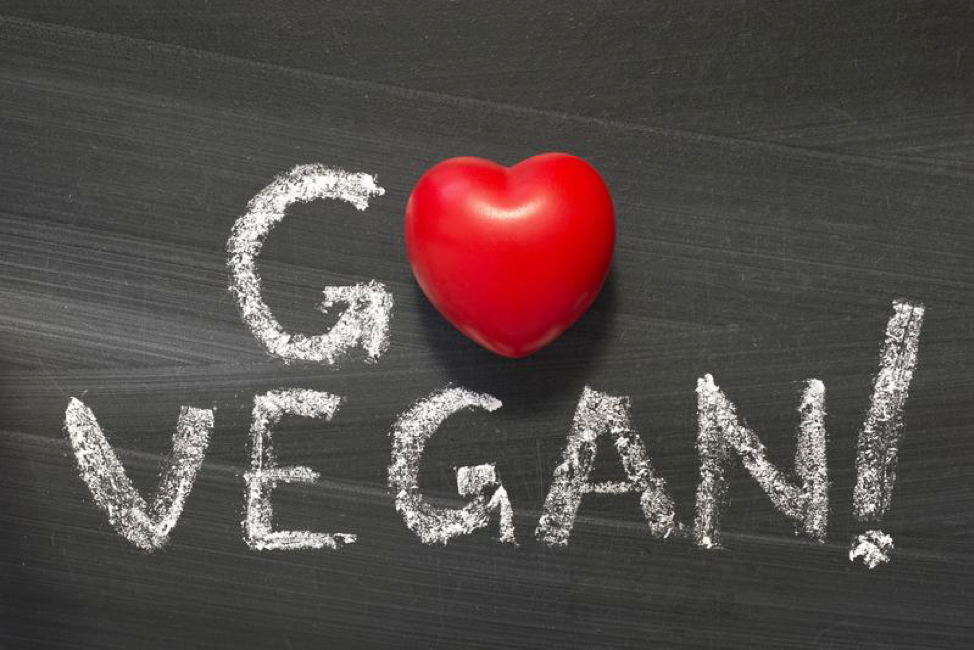
Antioxidants 101 for Vegans
If you have taken on a vegan diet, this means that you consume food that doesn’t come from an animal-based product. There are many benefits to living a vegan lifestyle, but this lack of animal products can sometimes leave you short on certain nutrients. With a little bit of dietary planning and supplementation, you can still reap the benefits of eating vegan.
What Are Antioxidants, and How Do They Work?
The actual process of how an antioxidant works is pretty involved. However, the basic understanding of antioxidants can be understood from a molecular standpoint. Our universe is made of atoms, each with a core of protons and neutrons. Electrons also revolve around the core area. Two or more atoms are considered to be molecules. Our bodies contain DNA, which are large molecules joined together with atoms. When a bigger molecule in our body is broken down into smaller ones, this is the process called metabolism. When the body loses an electron within its molecule, it turns into a free radical. These free radicals can be extremely harmful to the body, causing cancer and disease. Antioxidants can provide electrons to the damaged molecule to neutralize it. ASEA explains that redox signaling molecules optimize antioxidant function, helping maximize health and wellness benefits.
Which Foods Contain the Most Antioxidants?
InnerSpark describes that there are many vegan foods that contain plenty of antioxidants. This can include foods like tomatoes, grapes, berries, dark chocolate, broccoli, artichokes, beans and walnuts. Basically, the more colorful a fruit or vegetable is, the more likely it is to have a high concentration of antioxidants. Buying these ingredients organic will increase their nutritional power. Organic products are free from pesticides, herbicides and fertilizers. All of those chemicals can actually harm your body and require more antioxidants.
It’s Great to Be a Vegan
Organic Facts talks about how there are many health benefits associated with being vegan. This includes a reduced risk of diabetes, high blood pressure, high cholesterol, cancer, arthritis, chronic inflammation, chronic pain and asthma. People who live a vegan lifestyle tend to have an easier time managing their weight and experiencing a higher level of energy each day.
Whether you're currently living as a vegan or you would like to take on this lifestyle, it is important that you understand the nutritional aspect. You want to reap all the benefits of being vegan, but you still want to make sure that you are getting all of the nutrients that your body needs in order to thrive.


